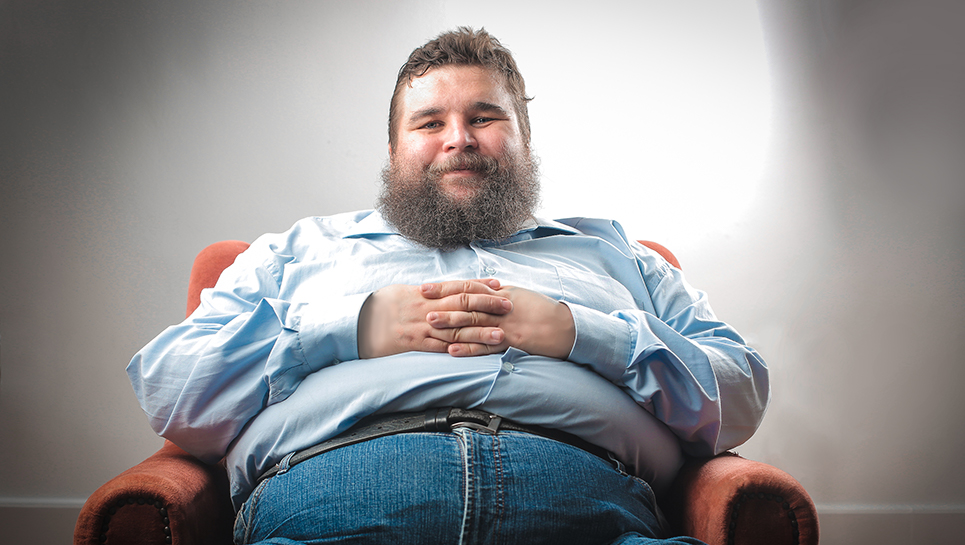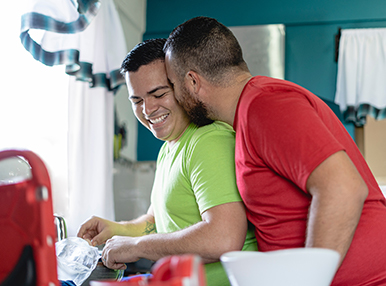More Than Semantics, Part 3

Here are some other terms and phrases that you might hear used in body liberation discussions. As with the previous “Semantics” posts, not everyone agrees about definitions and use, so when in doubt, be transparent and ask for clarification.
Orthorexia
This is one that should be of particular concern in public health. It is an eating disorder diagnosis that is used by advocacy and treatment organizations, although it is not yet part of the Diagnostic and Statistical Manual. The word was coined in 1988 and it is an obsession with “proper” or “healthy” eating, sometimes combined with extreme levels of exercise. People with orthorexia take awareness and concern for nutrition to a level that can cause harm, for example, manifested in an extremely restricted diet from cutting out whole food groups. According to the National Eating Disorder Association (NEDA), warning signs and symptoms include:

- Compulsive checking of ingredient lists and nutritional labels
- An increase in concern about the health of ingredients
- Cutting out an increasing number of food groups (all sugar, all carbs, all dairy, all meat, all animal products)
- An inability to eat anything but a narrow group of foods that are deemed ‘healthy’ or ‘pure’
- Unusual interest in the health of what others are eating
- Spending hours per day thinking about what food might be served at upcoming events
- Showing high levels of distress when ‘safe’ or ‘healthy’ foods aren’t available
- Obsessive following of food and ‘healthy lifestyle’ blogs on Twitter and Instagram
- Body image concerns may or may not be present
(Orthorexia, 2017)
Fatmisia
This is an alternative to “fatphobia.” Because a phobia (a persistent, excessive, unrealistic fear) is a diagnosable anxiety disorder (LeWine, MD, 2018), it is inappropriate and potentially offensive to use it to describe oppression against a certain group or identity. It is also an inaccurate label for actions against and structures designed to exclude people. Misia, from the Greek root miso (-Misia – WordSense Dictionary, n.d.), refers to hatred or distain. Fatmisia more accurately describes the experiences of people in larger bodies often have in our society, and is the term advocated for by some individuals and groups (Monroe, 2016; The Misia Pledge, Diversity Pride, n.d.). Additional alternatives include anti-fatness and anti-fat bias. As fatmisia is not well-known in the general public, you will find a variety of these terms used on this website.
Concern Trolling
In fat liberation circles, concern trolling refers to others, sometimes total strangers, giving unsolicited “advice” to people in larger bodies with the justification that they are “concerned about your health.” The “advice” includes various weight loss suggestions, often couched as “easy lifestyle changes.” It can also include “food surveillance or policing,” “trauma voyeurism” and a “tough love” attitude. Aubrey Gordon has written extensively on this issue (Gordon, 2020, Chapter 4), and is a good resource for understanding the many assumptions and stereotypes that underlie concern trolling, as well as the harm caused by usually well-intentioned people. Here are a couple of those assumptions:

- All people in larger bodies are unhealthy.
- All people in larger bodies can and want to lose weight.
- Weight loss is sustainable over the long term.
- People are fat because of personal choices and individual behaviors.
Good information about the inaccuracy of these assumptions can be found in “An Evidence-Based Rationale for Adopting Weight-Inclusive Health Policy” by Hunger, Smith and Tomiyama (Hunger et al., 2020). Concern trolling negates the myriad reasons why our bodies look the way they do, including things outside of our control and the stress of stigma and discrimination. It also violates body autonomy, and perpetuates the (usually unconscious) white supremacist attitude that some people have jurisdiction over other people’s bodies.
ALLY ACTION
- Don’t approach strangers with health or any other advice or commentary on their body. Just don’t.
- Avoid commenting on other people’s food choices – the type of food, the amount, how or when they are eating. This includes labeling foods as either “good” or “bad.”
- If you are concerned about a friend, whether because their body has changed or for some other reason, just ask, “How are you?” Or, perhaps, “How are things going at work?” or, “How is your new apartment?” or some other general question. Let them lead the discussion and what they want to share. (Thanks to some of my Fat Studies students for this compassionate, non-stigmatizing approach to checking in with a friend.)
CURIOUS TO LEARN MORE?
- Gordon, A. (2020). What We Don’t Talk About When We Talk About Fat. Beacon Press.
- Hunger, J. M., Smith, J. P., & Tomiyama, A. J. (2020). An Evidence‐Based Rationale for Adopting Weight‐Inclusive Health Policy. Social Issues and Policy Review, 14(1), 73–107.
- LeWine, MD, H. (2018, December 18). Phobia. Harvard Health.
- -misia—WordSense Dictionary. (n.d.). Retrieved May 9, 2023.
- Monroe, D. (2016, October 9). 3 Reasons to Find a Better Term Than ‘-Phobia’ to Describe Oppression. Everyday Feminism.
- Orthorexia. (2017, February 26). National Eating Disorders Association.
- The Misia Pledge || Diversity Pride. (n.d.). Diversity Pride. Retrieved May 9, 2023.